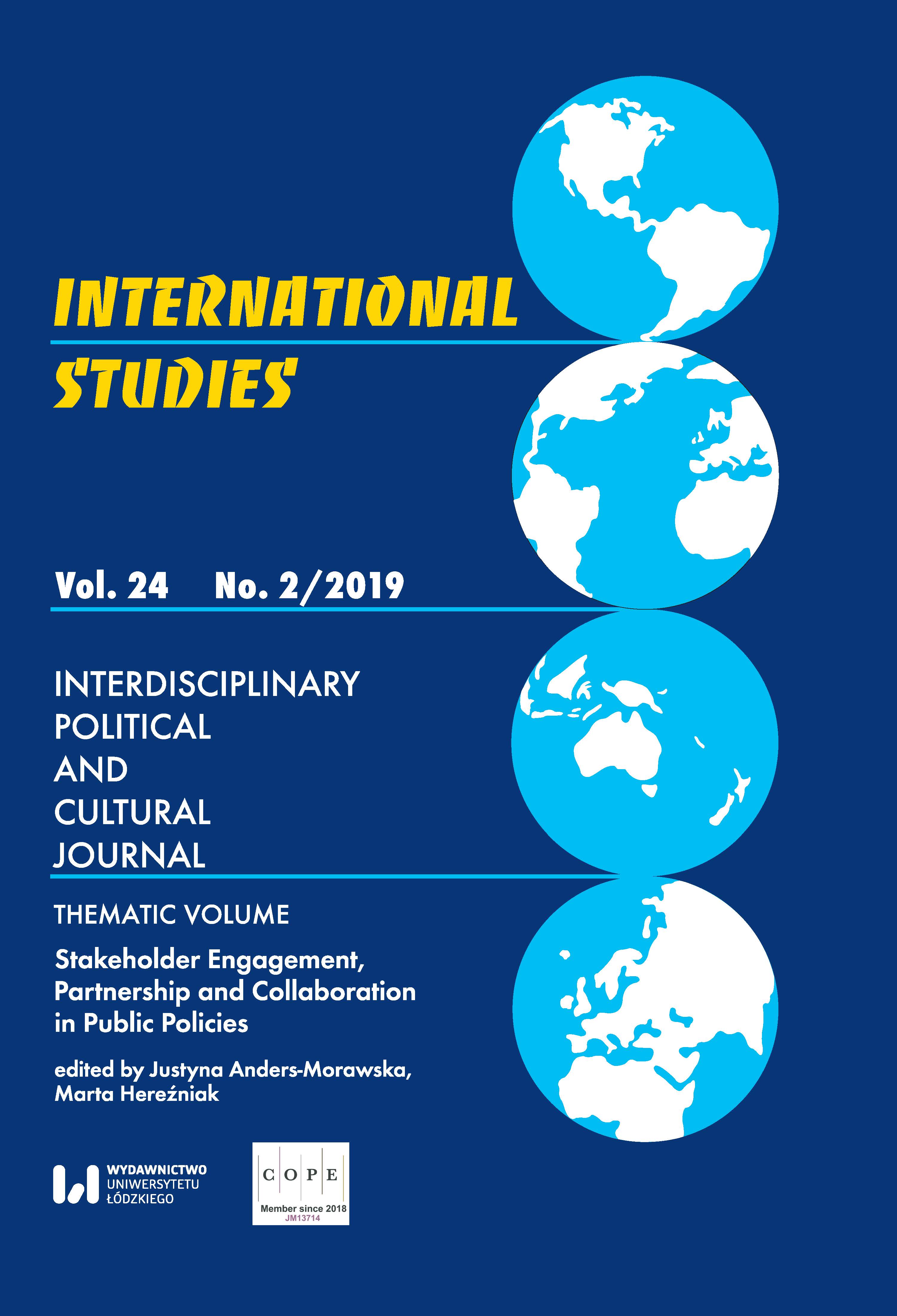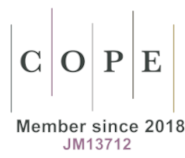Beyond Figures and Numbers Participatory Budgeting as a Leverage for Citizen Identity and Attachment to Place
DOI:
https://doi.org/10.18778/1641-4233.24.03Słowa kluczowe:
participatory budget, place attachment, social identity, community development, participatory democracy, place managementAbstrakt
The purpose of the paper is to examine the potential of participatory budgeting (PB) for the formation of citizen identity and attachment to the place in terms of individual, territorial and thematic focus. In the theoretical discussion, the authors analyse the concepts of place attachment, social identity and their influence on civic participation. The authors propose a conceptual framework for the analysis of relationships between PB, place attachment, and social identity. In the case of the community development model of PB, place attachment should lead to the citizens’ increased inclination to participate. In the case of participatory democracy model of PB citizen participation can lead to a stronger place attachment. The conceptual framework presented in the paper requires empirical confirmation. Further research on the subject should revolve around the influence of place attachment on the formation of social identity and vice versa by application of the discussed models of PB. The placemakers should take into account literature-based evidence that advisory models of PB do not reinforce place identity. The places that apply one of the transition models should consider the evolution of their PB policies towards either community development model or participatory democracy model. By review of diverse theoretical approaches on place identity and local participation, the paper creates a solid foundation for further analysis of the relationships between the application of PB and the development of civic identity and place attachment.
Pobrania
Bibliografia
Allegretti, G. “Paying Attention to the Participants’ Perceptions in Order to Trigger a Virtuous Circle.” Hope for Democracy: 25 Years of Participatory Budgeting Worldwide. Ed. N. Dias. In Loco Association: São de Alportel, 2014.
Zobacz w Google Scholar
Altman, I. , and S. M. Low, eds. Place Attachment. New York: Plenum, 1992.
Zobacz w Google Scholar
Ashforth, B. E., et al. “Identification in Organizations: An Examination of Four Fundamental Questions.” Journal of Management 34.3 (2008): 325–374. http://dx.doi.org/10.1177/0149206308316059
Zobacz w Google Scholar
Avritzer, L. Participatory Institutions in Democratic Brazil. Washington D.C.: Woodrow Wilson Centre Press, 2009.
Zobacz w Google Scholar
Baiocchi, G. Militants and Citizens: The Politics of Participatory Democracy in Porto Alegre. Stanford: Stanford University Press, 2005.
Zobacz w Google Scholar
Baiocchi, G. “Participation, Activism, and Politics: The Porto Alegre Experiment and Deliberative Democratic Theory.” Politics & Society 29.1 (2001): 43–72. http://dx.doi.org/10.1177%2F0032329201029001003
Zobacz w Google Scholar
Braun, B. B., et al. “Place Attachment in Revitalizing Neighbourhoods. Individual and Block Levels of Analysis.” Journal of Environmental Psychology 23 (2003): 259–271.
Zobacz w Google Scholar
Cabannes, Y., Participatory Budgeting: Conceptual Framework and Analysis of Its Contribution to Urban Governance and the Millenium Development Goals. Working Paper 140, Quito: UN Habitat, 2004, pp. 1–65.
Zobacz w Google Scholar
Campelo, A. “Rethinking Sense of Place. Sense of One and Sense of Many.” Rethinking Place Branding: Comprehensive Brand Development for Cities and Regions. Eds. M. Kavaratzis, et al. Springer, Cham, 2015, pp. 51–60.
Zobacz w Google Scholar
Clarke, M., and J. Stewart. Community Governance, Community Leadership and the New Local Government. York: York Publishing Services, 1998.
Zobacz w Google Scholar
Cross, J. E. What is Sense of Place?, paper prepared for the 12th Headwaters Conference, Western State College, 2–4 Nov 2001.
Zobacz w Google Scholar
De Sousa Santos, Boaventura. “Participatory Budgeting in Porto Alegre: Toward a Redistributive Democracy.” Politics & Society 26.4 (1998): 461–510. http://dx.doi.org/10.1177%2F0032329298026004003
Zobacz w Google Scholar
De Souza Santos, Boaventura, ed. Democratizing Democracy: Beyond the Liberal Democratic Canon. London: Verso, 2007.
Zobacz w Google Scholar
Fuhr, H., and T. Campbell. Leadership and Innovation in Subnational Government: Case Studies from Latin America, World Bank Development Studies, Mar 2004. http://dx.doi.org/10.1596/0-8213-5707-7
Zobacz w Google Scholar
Fung, A. Empowered Participation: Reinventing Urban Democracy, Princeton: Princeton University Press, 2009.
Zobacz w Google Scholar
Gieseking, Jen Jack, et al., eds. The People, Place, and Space Reader. New York and London: Routledge, 2014.
Zobacz w Google Scholar
Habermas, J. Between Facts and Norms, Cambridge, MA: MIT Press, 1996.
Zobacz w Google Scholar
Hafer, J. A. and B. Ran. “Developing a Citizen Perspective of Public Participation: Identity Construction as Citizen Motivation to Participate.” Administrative Theory & Praxis 38 (2016): 206–222.
Zobacz w Google Scholar
Hague, L. A. “Identity and Place: a Critical Comparison of Three Identity Theories.” Architectural Science Review 50.1 (2007): 44–51.
Zobacz w Google Scholar
Harvard University Centre for Urban Development Studies. Assessment of Participatory Budgeting in Brazil, Washington: Inter-American Development Bank, 2003, p. 10.
Zobacz w Google Scholar
Ingram, H., and S. R. Smith. Public Policy for Democracy. Washington, D.C.: Brookings Institution Press, 2011.
Zobacz w Google Scholar
Jorgensen, Bradley S., and Richard C. Stedman. “Sense of Place as an Attitude: Lakeshore Owners Attitudes toward Their Properties.” Journal of Environmental Psychology 21.3 (2001): 233–248.
Zobacz w Google Scholar
Kavaratzis, Mihalis, and Mary Jo Hatch. “The Dynamics of Place Brands: An Identity-based Approach to Place Branding Theory.” Marketing Theory 13.1 (2013): 69–86.
Zobacz w Google Scholar
Kerr, Greg, and Jessica Oliver. “Rethinking Place Identities.” Rethinking Place Branding Comprehensive Brand Development for Cities and Regions. Ed. M. Kavaratzis, et al. Springer, Cham, 2015, pp. 61–72.
Zobacz w Google Scholar
Low, S. On the Plaza: The Politics of Public Space and Culture. Austin: University of Texas Press, 2000.
Zobacz w Google Scholar
Low, Setha M., and Irwin Altman. “Place Attachment: A Conceptual Inquiry.” Place Attachment. Ed. I. Altman and S. Low. Boston, MA: 1992, pp. 1–12.
Zobacz w Google Scholar
Lowndes, V., et al. “Diagnosing and Remedying the Failings of Official Participation Schemes: The CLEAR Framework.” Social Policy and Society 5.2 (2006): 281–291. http://dx.doi.org/10.1017/s1474746405002988
Zobacz w Google Scholar
Manzo, L. C. “Beyond House and Haven: Toward a Revisioning of Emotional Relationships with Places.” Journal of Environmental Psychology 23.1 (2003): 47–61.
Zobacz w Google Scholar
Marquetti, A., et al. “Participatory Economic Democracy in Action.” Review of Radical Political Economics 44.1 (2011): 62–81. http://dx.doi.org/10.1177%2F0486613411418055
Zobacz w Google Scholar
Maton, K. I. “Empowering Community Settings: Agents of Individual Development, Community Betterment, and Positive Social Change.” American Journal of Community Psychology 41.1–2 (Mar 2008): 4–21. https://doi.org/10.1007/s10464-007-9148-6
Zobacz w Google Scholar
Peters, B. G., and J. Pierre. “Citizens versus the New Public Manager: The Problem of Mutual Empowerment.” Administration and Society 32.1 (2000): 9–28. https://doi.org/10.1177/00953990022019335
Zobacz w Google Scholar
Proshansky, H. M. et al. “Place-Identity: Physical World Socialization of the Self.” Journal of Environmental Psychology 3 (1983): 57–83.
Zobacz w Google Scholar
Relph, E. Place and Placelessness. London: Pion, 1976.
Zobacz w Google Scholar
Roberts, N. “Public Deliberation in an Age of Direct Citizen Participation.” American Review of Public Administration 34.4 (2004): 315–353. http://dx.doi.org/10.1177/0275074004269288
Zobacz w Google Scholar
Scannell, L., and R. Gifford. “Defining Place Attachment. A Tripartite Organization Framework.” Journal of Environmental Psychology 30 (2010): 1–10.
Zobacz w Google Scholar
Silva, Marcelo Kunrath. “Participation by Design: The Experiences of Alvorada and Gravataí, Rio Grande do Sul, Brazil.” Radicals in Power The Workers’ Party (PT) and the Experiments in Urban Democracy in Brazil. Ed. Gianpaolo Biaocchi. London: Zed Books 2003, pp. 113–130.
Zobacz w Google Scholar
Simmons, R., and J. Birchall. “A Joined-up Approach to User Participation in Public Services: Strengthening the ‘Participation Chain.’” Social Policy & Administration 39 (2005): 260–283. http://dx.doi.org/10.1111/j.1467–9515.2005.00439.x
Zobacz w Google Scholar
Sintomer, Y., et al. “Transnational Models of Citizen Participation: The Case of Participatory Budgeting.” Journal of Public Deliberation 8.2 (2012).
Zobacz w Google Scholar
Stortone, S., “Participatory Budgeting: Heading Towards a ‘Civil’ Democracy?” A Panacea for All Seasons? Civil Society and Governance in Europe. Eds. M. Freise, et al. Baden-Baden: Nomos, 2010, pp. 99–119
Zobacz w Google Scholar
Tajfel, H. Social Identity and Intergroup Relations. Cambridge: Cambridge University Press, 1982.
Zobacz w Google Scholar
Totikidis V., et al. “The Concept of Community Governance: A Preliminary Review.” Refereed paper presented at the GovNet Conference, Monash University, Melbourne, 28–30th November, 2005. http://vuir.vu.edu.au/955/1/The_Concept_of_Community_Governance.pdf (Accessed 29 Mar 2017)
Zobacz w Google Scholar
Vigoda, E. “From Responsiveness to Collaboration: Governance, Citizens, and the Next Generation of Public Administration.” Public Administration Review 62 (2002): 527–540. http://dx.doi.org/10.1111/1540–6210.00235
Zobacz w Google Scholar
Wampler, Brian. Participatory Budgeting in Brazil: Contestation, Cooperation, and Accountability. University Park: Penn State Press, 2010.
Zobacz w Google Scholar
Wampler, Brian. “Participatory Budgeting: Core Principles and Key Impacts”. Journal of Public Deliberation 8.2. (2012): 12–1 -12–13.
Zobacz w Google Scholar
World Bank. State Society Synergy for Accountability. Lessons for the World Bank. World Bank Working Paper No 30. Washington D.C.: The World Bank, 2004.
Zobacz w Google Scholar
Pobrania
Opublikowane
Jak cytować
Numer
Dział
Licencja

Utwór dostępny jest na licencji Creative Commons Uznanie autorstwa – Użycie niekomercyjne – Bez utworów zależnych 4.0 Międzynarodowe.

















